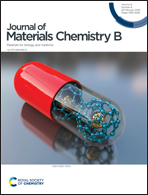Investigating the effect of acidic and basic precipitation on the antibacterial activity of ZnO nanoparticles against Gram-negative and Gram-positive bacteria
Abstract
In the present work, acidic (direct) and basic precipitation (indirect) methods were used to demonstrate the influence of the mode of precipitation on the structural properties of ZnO nanoparticles (NPs). Four samples of ZnO nanoparticles were prepared, two samples via each mode of precipitation. DZOa and IZOa were the aged samples prepared via acidic and basic precipitation methods, and DZOwa and IZOwa were processed without aging. Both precipitation processes were carried out without using any surfactant reagents. Zinc hydroxide precipitate, which was formed during the basic precipitation method, could be critical in deciding the properties of ZnO NPs, unlike zinc hydroxide formed during acidic precipitation. Aging of zinc hydroxide, synthesised by basic precipitation method for 48 hours was found to be an added advantage in controlling the properties of ZnO NPs. The influence of the mode of precipitation on the structural properties and antibacterial activity of ZnO NPs against Gram-positive and Gram-negative bacterial strains was tested. The antibacterial activity of all four ZnO NPs was analysed via zone of inhibition measurements at a concentration dose of 200 μg ml−1. IZOa nanoparticles prepared using the basic precipitation method showed a higher antibacterial activity against three Gram-negative and one Gram-positive strains, namely, Klebsiella pneumoniae, Pseudomonas aeruginosa, Staphylococcus aureus, and Escherichia coli. DZOa nanoparticles synthesized through acidic precipitation showed relatively high antibacterial activity against Salmonella typhimurium, a Gram-negative strain. ZnO NPs prepared without aging, IZOwa and DZOwa, showed a higher antibacterial activity against E. coli and Bacillus sp. strains, respectively. All ZnO NPs were characterized via UV-visible, FTIR, XRD, and HRSEM techniques.



 Please wait while we load your content...
Please wait while we load your content...